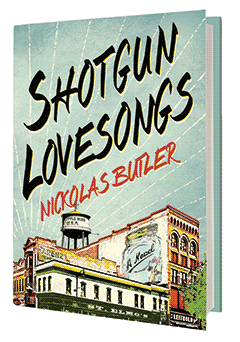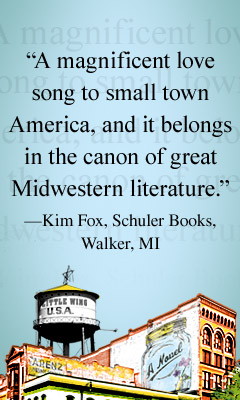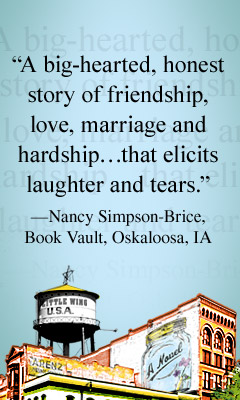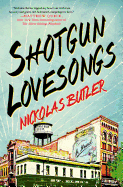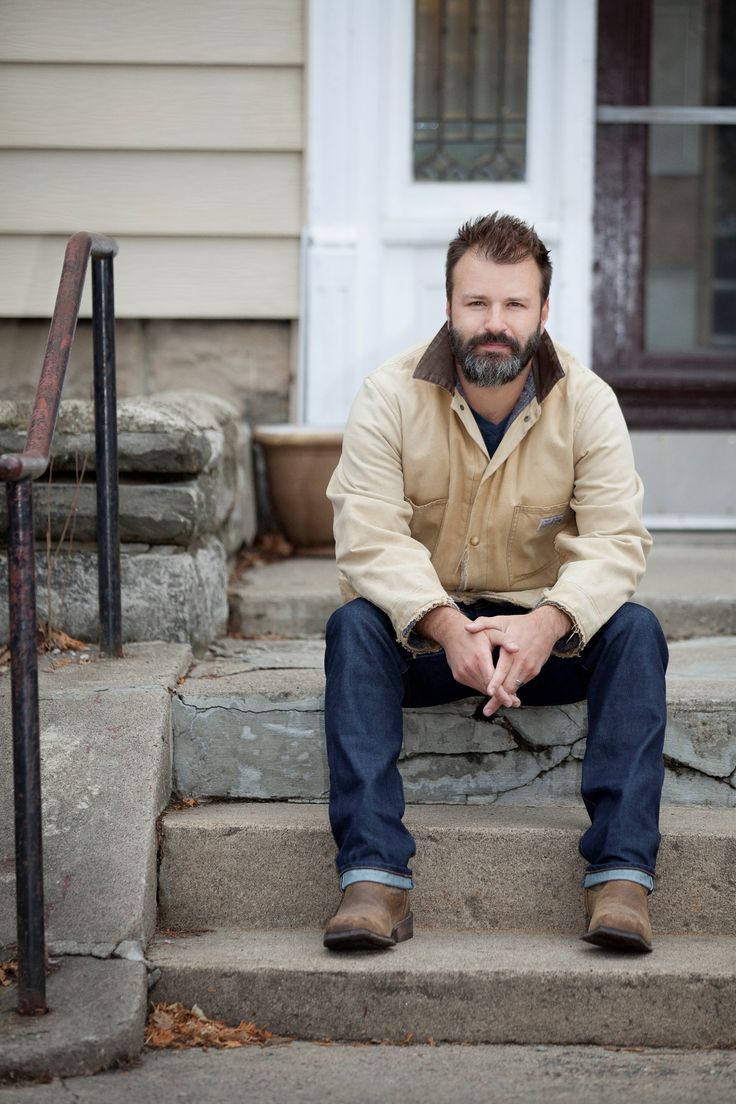Shotgun Lovesongs
by Nickolas Butler
In an elegant but down-to-earth debut, Nickolas Butler envisions small-town America through the eyes of four men--one of them a world-famous indie rock star--and one of their wives, all natives of Little Wing, Wis. "These men, these men who have known one another their entire lives. These men who were all born in the same hospital, delivered by the same obstetrician," says Beth, the aforementioned wife, who sometimes envies their male camaraderie. Every lifelong relationship has its ups and downs, though, and over the course of four weddings and several years, their bonds pass through trials of distance and betrayal.
Lee, better known to the general public as indie rock singer Corvus, tours the world but always comes home to Little Wing. "When I had nowhere else to go, I came back here. When I had nothing, I came back here. I came back here and made something out of nothing." When he returns, his friends always receive him with open arms. Charismatic and innocently arrogant, Lee envies his best friend Henry's family life and ties to the land, never imagining the simple life might come with its own obstacles.
While Lee feels jealous of Henry's life, steady and honest Henry sometimes wishes he weren't too proud to ask Lee for a loan. He and his wife Beth have never seriously considered living anywhere but Little Wing, but their small dairy farm runs on a budget so tight that Beth has looked into food stamps. Money troubles aside, Henry and Beth know that their greatest blessing is their fierce love for each other and their growing family. Beth sometimes fantasizes about the life she might have had if her long-ago fling with Lee had grown into more, but even then, her focus spirals back to knowing she and Henry were meant to be: "Would Lee and I come over to Henry's house and have dinner with him and his wife, their children buzzing all around us, and would I look at Henry and detect some infinite sadness, an emptiness that was my absence in his life?" But when Henry belatedly learns the truth about Beth and Lee's brief connection, over 30 years of shared history may not be enough to repair the damage to their marriage, or to Lee and Henry's friendship.
Although his other friendships may falter, Ronny's loyalty to Lee is unshakeable. A former rodeo star, Ronny's career ended prematurely due to a head injury caused not by a bull, but by a simple drunken stumble. Now a recovering alcoholic who lives in a rundown trailer, Ronny tries again and again to pack up and leave Little Wing, but well-intentioned neighbors always notice and bring him home. For Ronny, Little Wing is a reminder of his fallen star and good times now gone.
Finally, there's Kip, always farthest out in the orbit, never feeling he belongs. After a successful stint in Chicago, Kip returns to Little Wing with a wife and a mission to finally prove he belongs in his hometown by renovating the old feedmill that figures so prominently in his high school memories: "Because on top of those old wood and cement grain silos, we found narrow places to lie on our backs and stare at the stars, to drink beer, to talk big, to dream. Our town, Little Wing, down there, not much to see and always shrinking, not even a stoplight blinking against the night, and everyone, all of us, putting it down, talking about leaving, going somewhere, going anywhere but here." Kip has visions of a thriving restaurant, of using the mill to put Little Wing on the map, but his dreams carry a hefty price tag. Of the four friends, Kip is most emblematic of a young professional generation trying to find its place, of wanting to belong in the place you call home but discovering home no longer fits.
Butler's story of five 30-somethings seeking to make sense of how their future relates to their beginnings may focus on small town living, but it will resonate with anyone who ever struggled to reconcile dreams with financial security, true love with real life, and unwelcome changes with changes that never seem to come. Each character must make his or her peace with the road not taken. Butler doesn't fall into the trap of romanticizing small town life, instead showing the difficulties that make rural living often more trying than rewarding. Like any small town, though, Little Wing's strength is in the character of its residents. As Lee observes: "America, I think, is about poor people playing music and poor people sharing food and poor people dancing, even when everything else in their lives is so desperate.... And people can say that I'm wrong, that we're a puritanical people, an evangelical people, a selfish people, but I don't believe that." After spending time with the people of Little Wing, readers will agree. --Jaclyn Fulwood



